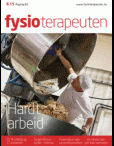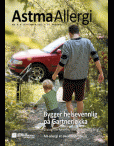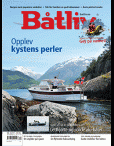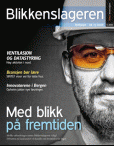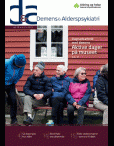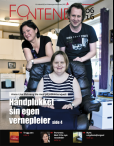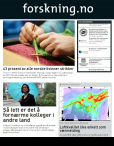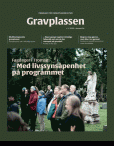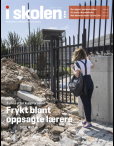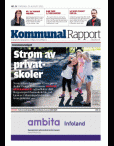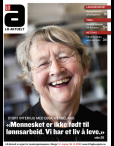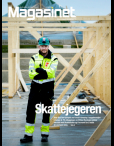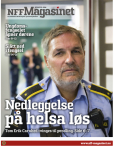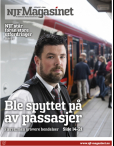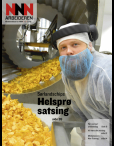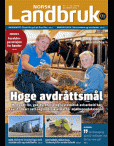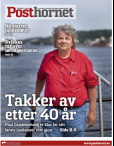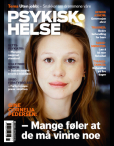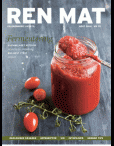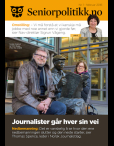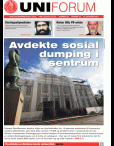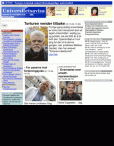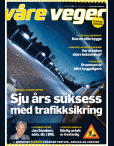Fysioterapeuten
26.08.2020

Introduction
The recent promotional campaign from the Canadian Physiotherapy Association states that physiotherapists' work takes them from treating patients to moving people' (http:// tinyurl.com/ya954p65). One reading of this is that physiotherapy covers a broad range of locations, from treating patients in clinics and hospital wards to working with people in their homes and communities. Another reading, however, suggests that physiotherapy is fundamentally changing: physiotherapists used to treat' people, now we prescribe exercise. Coming at the highpoint of the COVID-19 outbreak, the campaign reminds us how much the crisis has disrupted normal' physiotherapy, and how the pandemic might be reshaping our practice.
Physiotherapists have known crises before, however. And the configuration of modern-day physiotherapy owes much to our response to earlier calamities. World War I played a huge role in cementing physiotherapists as the orthodox providers of physical rehabilitation in many countries, and the polio epidemics that ran through the first half of the 20th century gave birth to many professional bodies (1). There are some essential differences between health care in the last century and healthcare today, though, and these differences might mean a very different outcome for the profession.
Physiotherapy in the last century benefited from two distinctive external influences: an established medical profession, and the welfare state (1). In centuries before, when there had been epidemics or massive social upheavals, there had been no social safety net to provide essential services for the population, and no established medical profession to partner with. People mainly had to fend for themselves. In the 20th century, developed countries had sufficient resources to build social welfare systems that, amongst other things, provided the infrastructure to support training and development of thousands of new health professionals, including physiotherapists.
Over the last 50 years, successive neoliberal governments have sought to reverse this trend, however, decentralising healthcare and reducing the size of the welfare state (2-4). Nation-states have opened up markets to greater competition, increased accountability for healthcare spending, placed more choice and responsibility in the hands of individual citizens, and challenged the historical power of the medical professions. So, notwithstanding the recent outpouring of support for healthcare workers, many governments throughout the world have been on a decades-long quest to reduce the influence of social welfare and the orthodox medical profession. This kind of service reform is only likely to accelerate in the coming years, as the costs of the pandemic dig deeply into national economic reserves.
Over recent weeks, healthcare workers all over the world have turned to online therapy as the only viable way to engage in practice, and some have wondered whether this represents a new market for physiotherapy services? But if people like Daniel and Richard Susskind are right, these innovations in practice might be leading professions like physiotherapy down a dangerous path.
In their book The Future of the Professions (5), the authors argue that successive decades of technical and work disruptions in industries like manufacturing, banking, and law, have taught us that anything you can practice as a discrete skill, or describe and explain in a language that others can easily follow, will almost certainly be lost to those who are cheaper to train and employ. But this is precisely what scores of physiotherapists are now trying to do on social media to promote their business. Because therapists can't be there in person, they are learning to show people how to do it for themselves and thereby showing those practices that may well be the first ones we lose from professional control.
And perhaps rightly so. Physiotherapists never owned essential fi
Gå til medietPhysiotherapists have known crises before, however. And the configuration of modern-day physiotherapy owes much to our response to earlier calamities. World War I played a huge role in cementing physiotherapists as the orthodox providers of physical rehabilitation in many countries, and the polio epidemics that ran through the first half of the 20th century gave birth to many professional bodies (1). There are some essential differences between health care in the last century and healthcare today, though, and these differences might mean a very different outcome for the profession.
Physiotherapy in the last century benefited from two distinctive external influences: an established medical profession, and the welfare state (1). In centuries before, when there had been epidemics or massive social upheavals, there had been no social safety net to provide essential services for the population, and no established medical profession to partner with. People mainly had to fend for themselves. In the 20th century, developed countries had sufficient resources to build social welfare systems that, amongst other things, provided the infrastructure to support training and development of thousands of new health professionals, including physiotherapists.
Over the last 50 years, successive neoliberal governments have sought to reverse this trend, however, decentralising healthcare and reducing the size of the welfare state (2-4). Nation-states have opened up markets to greater competition, increased accountability for healthcare spending, placed more choice and responsibility in the hands of individual citizens, and challenged the historical power of the medical professions. So, notwithstanding the recent outpouring of support for healthcare workers, many governments throughout the world have been on a decades-long quest to reduce the influence of social welfare and the orthodox medical profession. This kind of service reform is only likely to accelerate in the coming years, as the costs of the pandemic dig deeply into national economic reserves.
Over recent weeks, healthcare workers all over the world have turned to online therapy as the only viable way to engage in practice, and some have wondered whether this represents a new market for physiotherapy services? But if people like Daniel and Richard Susskind are right, these innovations in practice might be leading professions like physiotherapy down a dangerous path.
In their book The Future of the Professions (5), the authors argue that successive decades of technical and work disruptions in industries like manufacturing, banking, and law, have taught us that anything you can practice as a discrete skill, or describe and explain in a language that others can easily follow, will almost certainly be lost to those who are cheaper to train and employ. But this is precisely what scores of physiotherapists are now trying to do on social media to promote their business. Because therapists can't be there in person, they are learning to show people how to do it for themselves and thereby showing those practices that may well be the first ones we lose from professional control.
And perhaps rightly so. Physiotherapists never owned essential fi


